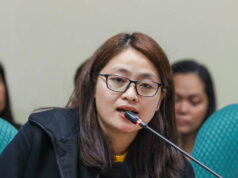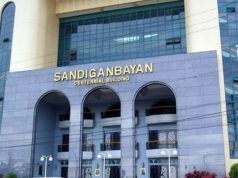Dasmariñas group calls Globe a ‘corporate bully’ for suing resident
AN ASSOCIATION of residents from Dasmarinas Village has hit Globe Telecom, Inc. over the suit it filed against one resident for allegedly “spreading rumors” about health hazards brought by radiation emitted by telecommunication antennas, which supposedly prevented the company from putting up cell sites within the private subdivision.
“Globe filed a P5-million lawsuit against Betty Aw for allegedly obstructing its plan to erect Globe cell sites or towers known as ODAs (Outdoor Distribution Antennae System). But the cell towers have already long been erected,” Dasma Coalition Advocating Radiation Emission Safety (DASMA CARES) and Dasma for Accountability, Transparency and Service (DASMA ACTS) said in a statement over the weekend.
The group cited that on Oct. 8, 2008, Ma. Victoria Celdran, representing the Dasmariñas Village Association, Inc. (DVAI), entered into a 10-year lease with Globe for “cellsite construction and broadband facilities” for P2 million annually and a one-time right-of-way fee of P600,000. This is renewable for another 10 years and the areas under lease are the mini park, clubhouse and pumping stations 1 and 2.
On May 15, 2012, Atty. Carlos “Charlie” P. Gatmaitan for DVAI also entered into a five-year lease with Globe for P100,000 per month, covering the sidewalks where Globe could erect ODAS. The lease, they said, which ends on May 14, 2017 but is extendible at the option of Globe, “absolutely bars other telcos” from erecting similar facilities in Dasmariñas Village.
“On May 2, 2013, Ma. Victoria P. Celdran entered into an addendum to the 2012 Contract of Lease. For an additional P100,000 per month, DVAI allowed the installation on its sidewalks of additional 31 poles, BTS antenna, equipment and cables, etc. These Contracts of Lease resulted in the present 55 Globe cell sites or towers known as ODAS spread all over Dasmariñas Village,” the group said.
DASMA CARES and DASMA ACTS also noted that Globe’s suit comes after Department of Information and Communications Technology (DICT) Secretary Rodolfo A. Salalima threatened to penalize residents and associations that “obstruct” the erection of cell towers in villages. They added that the pronouncement of Mr. Salalima, a former chief legal counsel and senior advisor of Globe as indicated in DICT’s Web site, is “in clear conflict of interest.”
NO CONSENT
The groups went on to say that the DVAI-Globe lease contracts violate section 10 of Republic Act No. 9904 or the Magna Carta For Homeowners and Homeowners Associations which, they said, bars the lease of sidewalks.
The “HLURB Locational Guidelines for Base Stations of Cellular Mobile Telephone Services and Other Wireless Communications Services” require the written consent of the homeowners whose properties are adjoining the proposed site of the base station.
“Despite repeated demands from homeowners, DVAI and Globe cannot and/or refuses to produce the required consent of the homeowner whose property adjoins the Globe ODAs within a 200 meter radius… Betty Aw is not at all intimidated by the complaint filed by a corporate bully and designed to intimidate not only the residents of Dasmariñas Village but all the people in this country who only seek to protect themselves and their families from the installation of cell sites inside residential areas that emit potentially life-threatening radiation 24/7,” the statement read.
Sought for comment, Globe Senior Vice-President for Corporate Communications Ma. Yolanda C. Crisanto said: “There is a pending case already.”
Globe Telecom filed a civil case last June 13 at the Regional Trial Court of Makati Branch 59 against Betty Aw, which also included a P500,000 claim for exemplary damages plus attorneys’ fee, for preventing construction of cell sites that kept the operator from improving mobile services within the exclusive subdivision. The P5 million covers moral damages.
The telco said it piloted the use of the ODAS technology in Dasmarinas as part of efforts to improve the mobile experience of its customers residing in the upscale subdivision.
The ODAS technology is a network of small cell sites, instead of typical macro cell sites, with shared equipment connected through fiber optic links. The solution makes use of a specialized lamp posts with radio signal transmission capability deployed along sidewalks.
The Ayala-led firm has earlier cited research from the World Health Organization and International Commission on Non-Ionizing Radiation Protection debunking claims that cell sites have adverse effects on human health. It added that the Department of Health has also ensured the Philippine Standard of thermal heat emissions from local cell sites “are at least four times lower than what has been approved globally.”
The DICT has submitted a draft executive order (EO) to President Rodrigo R. Duterte that aims to expedite the processing of permits and licenses for putting up telecom and broadcast facilities. If approved, the EO would speed up the process to seven days from the current average of eight months. — Imee Charlee C. Delavin



